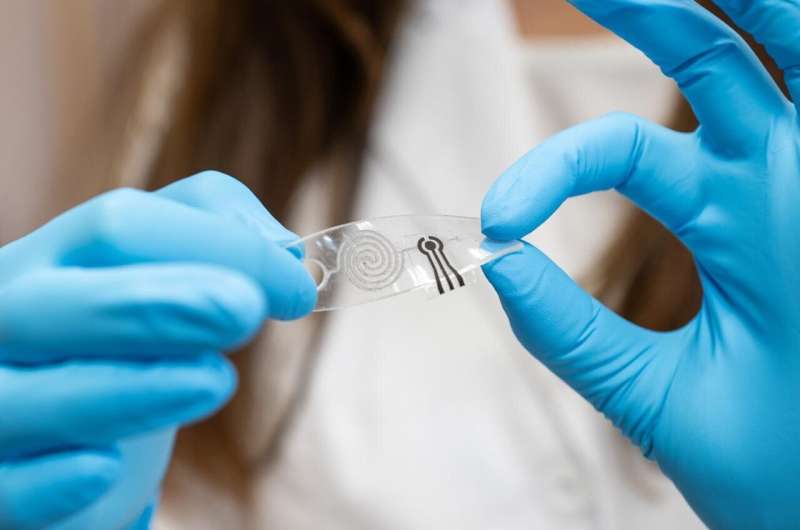That may no longer be an issue, thanks to the team at Penn State that has developed a novel wearable sensor capable of continuously monitoring low rates of perspiration for the presence of a lactate—a molecule the body uses to break down sugars for energy. This biomarker can indicate oxygen starvation in the body’s tissues, which is a key performance indicator for athletes as well as a potential sign of serious conditions such as sepsis or organ failure.
The researchers have published their approach in the journal Small. They report that their device, for which they have filed a patent, sits on the surface of the skin like a bandage and can collect up to 10 times the amount of sweat from low-intensity activities like walking, or even laying down or answering emails, compared to other wearable sweat sensors.
“Sweat offers a source of biomarkers we can monitor via non-invasive systems in near-real time for how the body is performing during exercise or to monitor or manage various health conditions,” said co-first and co-corresponding author Farnaz Lorestani, assistant research professor of engineering science and mechanics at Penn State.

